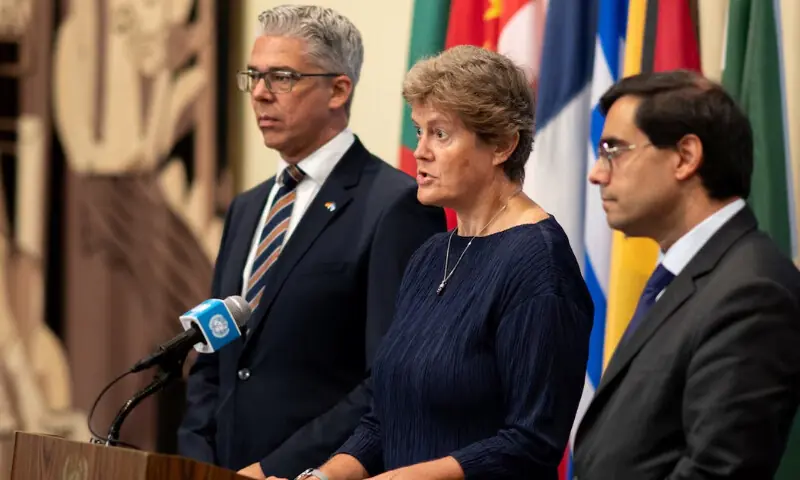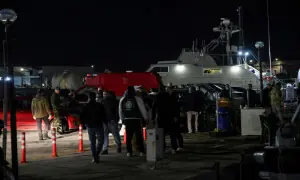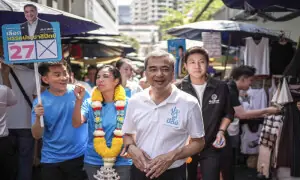UK, France and Germany urge Iran to agree deal to delay UN sanctions
Britain, France and Germany urged Iran at the United Nations on Friday to meet three requirements so their threat of reimposing UN sanctions can be delayed to allow space for talks on a deal to address their concerns about Tehran’s nuclear program.
UN envoys for the three countries - known as the E3 - issued a joint statement before a closed-door Security Council meeting, a day after they launched a 30-day process to reimpose UN sanctions on Iran over its disputed nuclear program.
The E3 offered to delay reinstating sanctions - known as snapback - for up to six months if Iran restored access for UN nuclear inspectors, addressed concerns about its stock of enriched uranium, and engaged in talks with the United States.
“Our asks were fair and realistic,” said Britain’s UN Ambassador Barbara Woodward, who read the statement. “However, as of today, Iran has shown no indication that it is serious about meeting them.”
“We urge Iran to reconsider this position, to reach an agreement based on our offer, and to help create the space for a diplomatic solution to this issue for the long term,” she said, with her German and French counterparts standing next to her.
In response, Iran’s UN Ambassador Amir Saeid Iravani said the E3 offer was “full of unrealistic preconditions”.
“They are demanding conditions that should be the outcome of negotiations, not the starting point, and they know these demands cannot be met,” he told reporters.
Iravani said the E3 should instead back “a short, unconditional technical extension of Resolution 2231”, which enshrines a 2015 nuclear deal that lifted UN and Western sanctions on Iran in return for curbs on its nuclear program.
For the latest news, follow us on Twitter @Aaj_Urdu. We are also on Facebook, Instagram and YouTube.
























Comments are closed on this story.